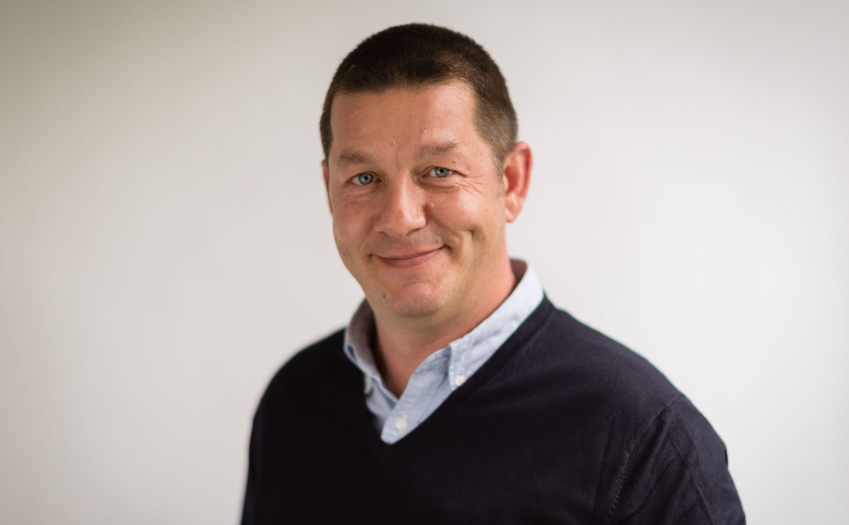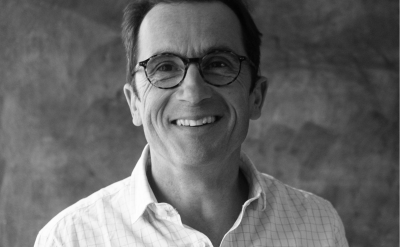News

François Haimez, SK 1997, eight lives at Kiabi!
From department manager to heading the brand’s largest market, François Haimez (SKEMA PGE 1997) has worked in all positions at Kiabi, the French leader in ready-to-wear fashion. François, who has been living in Brazil since March 2018, talks to us about the issues associated with the company’s international development, and the challenges presented by cross-cultural management.
Have you always worked in retail?
I started working in distribution when I was still a student. I worked at Décathlon and then, following an internship, I started at Auchan where I stayed for one year. I joined Kiabi in 1998 completely by chance, without asking myself too many questions, first as a department manager and then as a store manager. In this industry, experience in the field is crucial. It gives you a real structure; foundations for working sustainably. You get to understand what customer-facing colleagues experience every day. These early experiences are engraved in my memory. This career path wasn’t the most popular: business school students don’t dream of one day becoming a department manager. But it allowed me to discover the industry, learn the job inside out and progress at my own pace. I’m on to my 8th life at Kiabi. My background gives me credibility. I know all the inner workings.
How do you explain your loyalty to this company?
I didn’t intellectualise my career plan. I’m not passionate about fashion, but I like this company’s values. After straying over to Camaïeu for 5 years and then taking sabbatical leave, I came back. I loved to learn. My professionalism enabled me to move up the career ladder; people placed their trust in me. I came back as Regional Director and I rather quickly became Director of Operations (managing one third of France). Next, at the company’s corporate headquarters, I took on the role of Director of Marketing France. It was only after that that my international adventure began.
What are Kiabi’s challenges in expanding internationally?
Kiabi remained purely French for a long time. According to the barometers, our brand is the leader in the textile retail market in France (not considering shoes and accessories), clearly aimed at a working-class customer base. People enter Kiabi for the maternity and children’s sections, and stay until adolescence.
But the market was turned on its head by the arrival of ready-to-wear giants like H&M or Zara. We reacted by refocusing on low prices and families. To stay strong, we had to expand internationally. We’ve been in Spain for 25 years; we’re in Italy, too. But over the last ten years we have focused on a real development strategy in order to get through the turbulence in the European market. We’ve expanded in two ways: franchised partners in about fifteen countries, and equity investments in the large markets. After Russia and Brazil, we will soon be targeting India and China.
So this was the reason you initially went to Moscow?
I didn’t particularly want to move to Russia, but we needed someone that our shareholders trusted. I accepted the challenge after some family debates. It’s not easy to change your life when you have three children, but we like to travel. Actually the reason I took sabbatical leave was to travel around the world. Professionally-speaking, it was a great experience. We were at the start of the project. Kiabi had three stores. We adapted our business model, our financial model. It was at the time of the Winter Olympics, followed by the annexation of Crimea and the Russian financial crisis. We decided to position ourselves as cheaper than our international competitors and on a par with local competitors. When I left, a dozen stores had been opened. Today, there are more than 20.
This was also a very rich experience on a personal level. We were able to discover the country, the Russian culture, and live in a megalopolis even though we’re provincials from Lille! Thanks to the great solidarity displayed by French expats, everyone got something out of it. The children adapted very easily. My wife wasn’t able to work, but she got involved in non-profits. We stayed for a little over two years. When I got back to France, I was put in charge of the French market.
How did you go from running a mature market like France to taking the helm in Brazil, a country where Kiabi was only just getting started?
For Kiabi, France represents 350 stores. That’s a big chunk in terms of figures and results. For someone like me who started out as a department manager, that’s a fantastic job. When I was asked to take on the challenge of Brazil after two years, I thought that was odd: there were no stores! I was going from a team of 5,000 in France to a team of 25 who had worked on the store-opening project. I am not a pioneer. I need to see tangible reality: stores, customers, products. Rather quickly, I saw it as another opportunity to discover something new. I’m 46 years old. I still have a few years ahead of me before I start contemplating zero-risk jobs. It’s a new adventure, both personally and professionally.
You’ve just opened two stores in Brazil. Do you give the brand a French identity?
Our positioning was decided 10 years ago. Just like Auchan, Décathlon and Leroy Merlin, we are part of the Mulliez family’s holding company called Association Familiale Mulliez or AFM. In the places where these stores establish themselves abroad, they operate as distributors. They adapt their concept and products to the market, source locally, and merge with the landscape by becoming brands identified as local. The Russians think that Auchan is a Russian company!
In the ready-to-wear market, fashion is becoming standardised all around the world. We therefore made the decision to establish our concept in Brazil, work with an international collection that is the same in all countries, and any adaptations are linked to the seasons. Of course, here we are going to put a greater emphasis on swimwear, sleeveless tops... we adapt to the timing of the seasons and we release a few specific products if there are major fashion trends within the country.
Are the stores set up in city centres?
Kiabi was founded in a stand-alone format (a cube set up on a supermarket car park). This has worked very well in France but it’s a little problematic abroad because this mode of shopping only exists in our country. In most countries, ready-to-wear fashion is bought in city centres or in shopping centres. This was a handicap for us. For the last 10 years only we have been working on a different format in shopping centres.
We made the choice to maintain a large surface because we cater to the whole family and want to offer a wide selection. Besides the surface area of our stores, we’ve had to move faster in renewing our products, and raise our game when it came to fashion, due to being in direct competition with H&M, Zara and Primark. Our entire approach has changed.
What are the difficulties you face abroad?
Professionally-speaking, I have found my bearings. But I’m still discovering Brazil, its culture and its language. I’m taking Portuguese lessons. I am a manager; I specialise in nothing but I must be credible in all things! So it is important to me to be able to communicate.
Two things remain a challenge for me. First, cross-cultural adaptation. I’m patient, calm and pretty even-tempered. To Brazilians, that is very strange. They like to be able to read their leader’s emotions. I don’t have angry outbursts and that is unsettling for them! So I’m working on myself to show more, to put them at ease. Six months in they appreciate it but it surprised them. In Russia there were other parameters. From a managerial point of view, there is a massive impact to changing countries. A trading account is a trading account, whether you’re in Brazil or in France. But when it comes to human relations, it’s super important to adapt.
Another point that is unsettling: our business model is popular in France. As soon as we find a source of savings, we take the opportunity to drop prices in order to be affordable to as many people as possible. Here in Brazil, a highly protectionist country, because of import duties we sell our products at 50% more than we sell them in France. Price-wise, we’re well placed compared to our competitors, but this doesn’t satisfy me. For the moment, we’re targeting the Brazilian middle class or even the upper class, and that is not Kiabi’s DNA. With Jair Bolsonaro’s election, we’ll see if Brazil becomes more international. That would enable us to use our purchasing power. The other option is to use Brazil’s or South-America’s productive force to produce more cheaply. We’re testing the business model and if it is as successful as we deem it to be at the moment, we will gradually mix in collections produced locally.
These markets require perseverance. We’re really lucky to have family shareholders with long-term vision rather than being publicly-traded.
Retail is going to undergo some radical shifts with the arrival of new technologies and the rise of online selling. How do you see this evolution?
No one knows what retail will be in 10 years. There is movement on the distribution, payment, shopping experience fronts and it’s fascinating because some formats will disappear. But I don’t believe in the death of physical networks. We’re going to transform ourselves according to technological developments and our customers. Some people aren’t online yet; others are in every way and yet we can’t seem to fulfil their expectations. Retail is a great school of business and management. It’s a fast-changing market full of challenges, particularly for young graduates.
Interview by Marie-Parlange (lepetitjournal.com) for SKEMA Alumni




